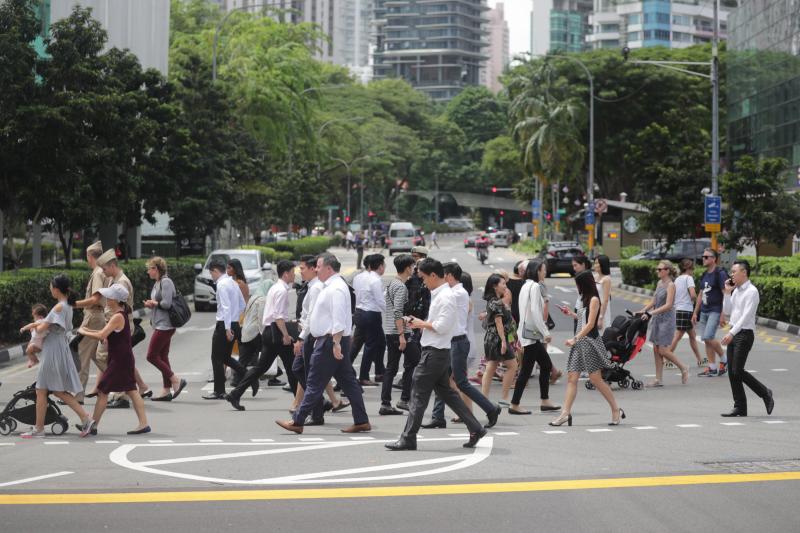To keep hope in Singapore 'alive and strong', Govt has to engage people, understand their concerns: Ong Ye Kung
Sign up now: Get ST's newsletters delivered to your inbox

Citizens can also play a part by making a conscious effort to go beyond the echo chambers in social media, and interacting with people in person to understand their views, said Education Minister Ong Ye Kung.
ST PHOTO: GIN TAY
Follow topic:
SINGAPORE - For future generations of Singaporeans to remain hopeful about the country, the Government has to always engage the people and understand their concerns, said Education Minister Ong Ye Kung.
This is why the country's leaders have shifted their governing style to go beyond working for Singaporeans, to working with them, he said on Tuesday (Dec 3) at a gala dinner to mark the 65th anniversary of Singapore Polytechnic (SP).
He noted that there are many policy proposals that would benefit from public participation, citing how many ideas for education reforms have come from parents, academics and MPs.
But he also cautioned that the Government always receives varied and even opposing views.
Its job is to then assess and decide on the most appropriate thing to do, figure out how to best implement it and to also explain the rationale to the public.
"In the nature of a consultative process, the decision will go against the opinions of some, and there will be a perception that the Government did not actually listen to them. But I think this problem is unavoidable," he told the gala attendees, which included SP alumni and industry partners at the Dover campus.
"As Government, we just have to be sincere about it and do our best to explain how we came to the decision, and get better at it over time."
Citizens can also play a part by making a conscious effort to go beyond the echo chambers in social media, and interacting with people in person to understand their views, Mr Ong said.
"I believe only then will society become better at managing and accepting differences in opinion, and a more consultative model will work," he added.
The minister also gave two other ways to keep hope in Singapore alive and strong.
Every government has to recognise that each generation grows up with different realities and circumstances, and understand the generation that is coming of age, he said.
He pointed to how young people today are deeply concerned about the existential threat of climate change, and wish for a fairer and more just society.
Strengthening institutions will also sustain hope for the future, he added.
This includes government organisations, institutes of higher learning, and the uniformed services, which will provide the capabilities to chart the future and tackle new issues, Mr Ong said.
Institutions also have to evolve with the times to help bring about a more cohesive society with a strong common identity, he added.
There will be failures and mistakes in that process, he noted. "When that happens, we must avoid taking actions that inadvertently sow distrust and undermine them. Because the only way to absolutely prevent mistakes is to not do anything, which will be disastrous in a time of change."
At the beginning of his speech, Mr Ong shared how a student recently asked him why the Government only looked at gross domestic product as a measure of success for Singapore.
"We don't and we shouldn't," he said in response to the student.
But a major part of people's well-being is economic well-being. That is why countries track GDP, as it is a dipstick of the economic well-being of their citizens, he said.
Mr Ong then made the point that housing, the economy and education are three key contributors to economic well-being.
Home ownership anchors people to its country and builds a foundation for individuals to unite and collectively build something bigger together, he said.
He added that Singapore's global connections and strong economy gives its people, especially the young, diverse opportunities.
Meanwhile, education provides the means for personal growth and gives Singaporeans the ability to seize the opportunities presented to them.
The education system is being reformed, he noted, because the environment has changed drastically. The changes include replacing streaming in secondary schools with full subject-based banding.
At the heart of these reforms is the need to define a broader meritocracy, he said, highlighting the importance of recent education reforms that emphasise less on academic grades, introduce aptitude-based admission to higher education and open up varied pathways for students.
There are also important changes in curriculum that he will explain when ready, Mr Ong said. "We need to help anchor students to core moral values from young, let them appreciate cultures outside of Singapore, and enable them to navigate and thrive a digital world," he said, adding these are critical competencies for the future.

